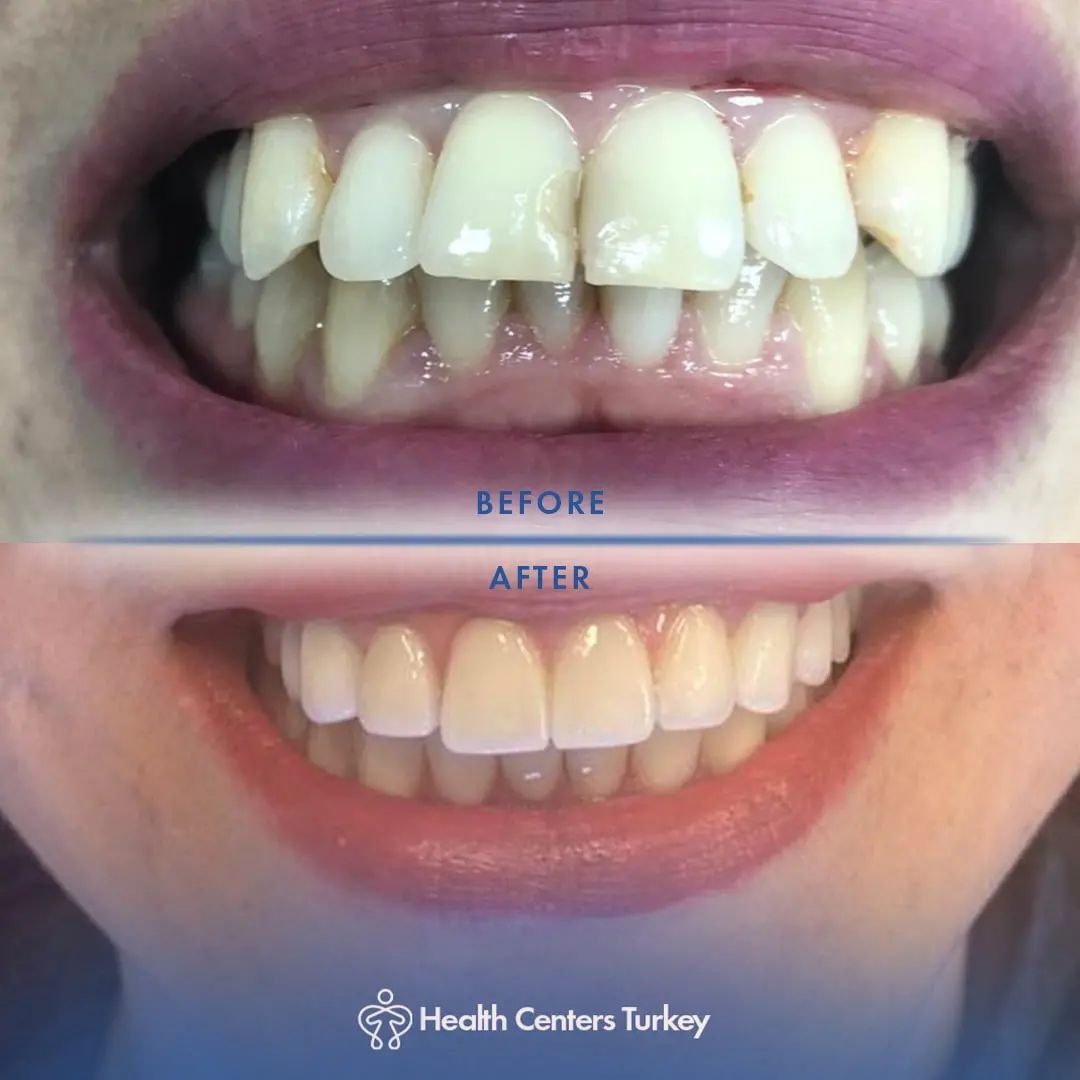Navigating Dental Clinics in Turkey
Navigating Dental Clinics in Turkey
Blog Article
Comprehensive Oral Health Packages for Every Budget
Dental implants have become a preferred solution for these seeking to replace missing teeth. Understanding how these implants can affect adjacent teeth is essential for anyone considering this procedure, as properly as for dentists and specialists concerned in dental care.

One significant side is that dental implants are designed to be anchored into the jawbone, which suggests they are independent of adjacent teeth. Unlike dental bridges, which regularly require the alteration of neighboring teeth, implants can fill the gap with out compromising the health or structure of these surrounding teeth.
This independence helps maintain the integrity of adjacent teeth. When a tooth is misplaced, there is normally a natural tendency for neighboring teeth to tilt or shift into the empty area. Such movement can result in misalignment, which may have an effect on chunk and overall oral health. By inserting an implant, you effectively prevent this potential shift, selling better alignment in the long term.
Create the Perfect Smile with Implants and Veneers
Additionally, dental implants help preserve bone density in the jaw. A natural tooth root provides stimulation to the encircling bone, maintaining it healthy and powerful. When a tooth is missing, the bone can begin to deteriorate because of lack of stimulation. With a dental implant mimicking a natural root, bone loss can be minimized, which not directly benefits adjacent teeth by preserving the general structure of the dental arch.
While dental implants are advantageous, improper placement can impression neighboring teeth. If an implant is positioned too shut to another tooth, it could exert undue stress on that tooth, resulting in discomfort or potential harm. Proper planning and imaging strategies are essential for avoiding such points.
Receive High-Quality Implant Dentistry for Great Value
Moreover, maintaining good oral hygiene is crucial after receiving an implant. If not correctly cleaned, surrounding teeth might turn into susceptible to dental points such as decay or gum disease. This underscores the significance of diligent oral care following the process to ensure both implants and adjacent teeth stay healthy.
Regular dental check-ups are also important for monitoring the health of surrounding teeth. Dentists can identify any shifts or potential problems early, permitting for well timed interventions. This proactive approach ensures that each the implant and adjacent teeth can coexist with out complications.
Discover the Most Advanced Dental Technologies Available in Turkey
Another consideration is the impact of implants on chew drive. When a single tooth is missing, the load of chewing may shift to adjacent teeth, probably resulting in wear or pressure. Implants restore correct bite dynamics by redistributing forces in the mouth, which might protect surrounding teeth from undue stress.
Some patients could elevate considerations concerning the appearance of dental implants. Well-placed implants can mix seamlessly with current teeth, improving general aesthetics. In distinction, failing to switch a missing tooth can lead to aesthetic issues, together with collapsing of facial structure and adjustments in smile dynamics.
It's also worth discussing the psychological elements of dental health. Experiencing tooth loss can adversely have an result on one’s self-esteem and willingness to engage socially. By restoring your smile with implants, you presumably can positively affect not only your oral health but also your emotional well-being.
Long-term success of dental implants usually hinges on varied factors, including the patient's look at here health, maintenance habits, and the quality of the preliminary process. If adjacent teeth are wholesome and properly cared for, the likelihood is that they'll continue to thrive alongside the implants.
Discover the Benefits of Dental Packages in Turkey
In conclusion, dental implants play an important function in not simply restoring particular person smiles, but in preserving the health and structure of adjacent teeth. By preventing shifting, maintaining bone density, and redistributing chew forces, implants can ensure that surrounding teeth stay in optimum condition. Proper placement, hygiene, and regular dental visits can further enhance the benefits of dental implants, leading to a healthier, more confident smile for years to return.
- Dental implants might help keep the alignment of adjacent teeth by offering a secure anchor, preventing adjacent teeth from shifting into the gap left by a missing tooth.
- The presence of an implant might stimulate bone growth in the jaw, helping to preserve the general structure and integrity of the adjacent teeth.
- Unlike conventional bridges, implants don't require alteration of surrounding teeth, thus preserving their energy and anatomy.
- Implants can improve the distribution of chunk forces evenly throughout the dental arch, decreasing the stress on neighboring teeth throughout chewing.
- A well-integrated dental implant can decrease the danger of bone loss within the area surrounding adjacent teeth, contributing to their long-term health and stability.
- The aesthetics of adjacent teeth could be improved due to the help offered by implants, which may lead to better overall beauty outcomes.
- With correct placement, dental implants can prevent gum recession round adjacent teeth by sustaining enough dental architecture.
- Implants can help mitigate the risks of periodontal disease in nearby teeth by selling wholesome gum tissue and offering a washable floor.
- Long-term success of dental implants can lead to improved oral hygiene routines, which in turn advantages the health of surrounding teeth.
- The improved useful ability of an implant can encourage patients to chew more effectively, thus rising saliva manufacturing and aiding in the protection of adjacent dental tissues.undefinedHow do dental implants affect adjacent teeth?
What are dental implants and the way do they work together with adjacent teeth?undefinedDental implants are artificial tooth roots which might be surgically placed into the jawbone. They present a secure foundation for replacement teeth whereas guaranteeing minimal disruption to adjacent teeth, preserving their integrity and alignment. Enhance Your Smile through Cosmetic Dentistry.
Comprehensive Cosmetic Dentistry offered in Antalya
Can dental implants cause problems for nearby natural teeth?undefinedGenerally, dental implants do not hurt adjacent natural teeth. However, if the implant isn't placed accurately or if there’s insufficient oral hygiene, it may result in issues similar to adjacent tooth decay or gum disease.

Will getting a dental implant change the way my adjacent teeth feel?undefinedMost sufferers report no change within the sensation of adjacent teeth after implant placement. However, it may take some time to regulate to the presence of the implant, similar to how one might adapt to different dental restorations.
Can dental implants help protect the health of adjacent teeth?undefinedYes, dental implants might help preserve the health of adjacent teeth by stopping bone loss that can happen after tooth loss. This preservation helps the alignment of close by teeth, decreasing the chance of shifting or misalignment.
Why Choose Dental Tourism in Turkey for Treatment
Do I need to modify adjacent why not look here teeth when getting an implant?undefinedTypically, adjacent teeth don't want alteration when inserting an implant. This is considered one of the advantages of dental implants over traditional bridges, which regularly require reshaping adjacent teeth for assist.
How does the therapeutic means of an implant have an effect on nearby teeth?undefinedThe therapeutic course of includes osseointegration, where the implant fuses with the jawbone. During this time, adjacent teeth remain unaffected and retain their operate, although it’s essential to follow post-operative care recommendations. Everything You Need to Know About Dental Tourism in Turkey.
What Makes Turkey Dental Treatments
Can dental implants lead to bone loss round adjacent teeth?undefinedIf dental implants are positioned properly and cared for adequately, they should not result in bone loss around adjacent teeth. In truth, they might help stimulate bone growth, combating the natural bone loss that often follows tooth extraction.
What precautions ought to I take to protect adjacent teeth after getting an implant?undefinedRoutine dental hygiene, including brushing and flossing, together with regular dental check-ups, is essential. Avoiding exhausting foods and following your dentist’s aftercare directions may also protect each the implant and adjacent teeth.
Is it common for adjacent teeth to shift after an implant is placed?undefinedIt's not typical for adjacent teeth to shift after an implant placement, particularly when the implant is placed accurately and maintained correctly. If there’s any movement, it might be due to different underlying issues that must be evaluated by a dental skilled. Report this page